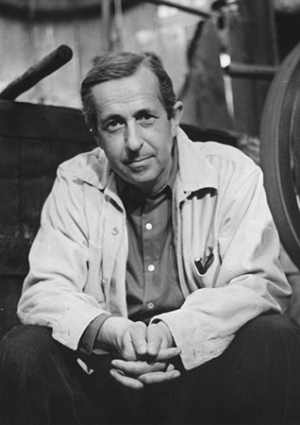Gallery
All Pictures (5)Biography
Harald Braun was born April 24, 1901, in Berlin. He studied German language and literature, art history, and philosophy in Freiburg and Berlin and received his PhD in 1922.
Subsequently, he worked as a tradesman and at the Protestant Adult Education Scheme. Later on, he became head of the literature departement of the German Protestant church's press association. In 1924, he founded "Eckart", a magazine for literature. Furthermore, he worked as an editor and publisher at the Scherl publishing company. In 1932, he started to work for the radio station Berliner Rundfunk.
In 1937, Braun was hired by the Ufa Film Company, where he served as an assistant to director Carl Froehlich. Their credits include movies such as "Das Herz der Königin" (1940). In 1942, Braun made his debut as a director with "Zwischen Himmel und Erde". This movie was followed by "Hab' mich lieb!" (1942), starring Marika Rökk, and the Schumann biopic "Träumerei" (1944).
After the end of World War II, Braun was appointed director of the Heidelberger Kammerspiele. Later, he got employed by Radio Munich where directed radio plays. In 1947, Erich Pommer granted him the concession to establish the film production company "Neue Deutsche Filmgesellschaft" alongside the writer Jacob Geis. His first post-war movie was "Zwischen gestern und morgen" (1947). "Nachtwache" (1949), however, was by far more successful. The movie describes how a female doctor whose daughter has died during the war regains her faith in God.
Subsequently, Braun directed further drama movies depicting ethical issues, including "Der fallende Stern" ("The Falling Star", 1950) and "Herz der Welt" ("No Greater Love", 1952), a film about the life of the pacifist Bertha von Suttner. "Herz der Welt" won numerous awards, including the German Film Award. Furthermore, Braun adapted several high-quality novels such as Thomas Mann's "Königliche Hoheit" ("His Royal Highness", 1953) and Gottfried Keller's novella "Regine" (1956). He also worked as a co-writer on Alfred Weidenmann's "Buddenbrooks" adaptation.
In 1957, Harald Braun produced Helmut Käutner's successful film "Monpti". In the same year, Braun, Käutner, and Wolfgang Staudte established the production company Freie Filmproduktion GmbH. However, Käutner's "Der Rest ist Schweigen" ("The Rest Is Silence") remained the only movie they produced.
Before Braun became a member of the Berlin Academy of the Arts in 1955, he served as vice-chairman of the Board of German Film Directors. He died on September 24, 1960, in Xanten.
